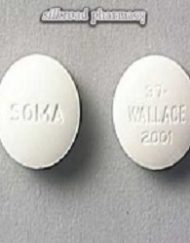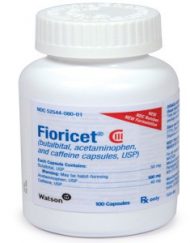Alprazolam Recall 2023: What You Need to Know
In recent news, a significant recall of alprazolam products has emerged, sparking concerns within the medical community and among patients who rely on this medication. Alprazolam, commonly known by its brand name Xanax, is a widely prescribed medication used to treat anxiety and panic disorders. This article aims to provide a comprehensive overview of the alprazolam recall 2023, its reasons, implications, and how patients and healthcare providers should respond.
Introduction
Alprazolam, a benzodiazepine medication, has been widely prescribed for years to manage anxiety and panic disorders. However, recent developments have led to a recall of certain alprazolam products in 2023, raising questions about patient safety and the broader implications of this recall.
Understanding Alprazolam (Xanax)
Alprazolam, sold under the brand name Xanax, is a medication known for its calming effects on the central nervous system. It is commonly prescribed to alleviate symptoms of anxiety, panic attacks, and various anxiety-related disorders.
Reasons Behind the 2023 Recall
We attribute the recall of alprazolam in 2023 to concerns over product quality and safety. The specific reasons for the recall can vary, ranging from issues with manufacturing processes to potential contamination or incorrect labeling.
Potential Risks and Concerns
The recall highlights potential risks associated with certain batches of alprazolam products. Patients taking the affected medication may face inadequate symptom relief or experience adverse effects due to compromised quality.
What Patients Should Do
If you are taking alprazolam, it’s crucial to check whether your medication is part of the recalled batch. If you find that your medication is affected, contact your healthcare provider immediately. Do not discontinue medication without consulting a medical professional, as abrupt discontinuation can have adverse effects.
Impact on Healthcare Providers
Healthcare providers play a vital role in ensuring patient safety during this recall. They should proactively identify patients who may be using the recalled medication, assess their individual situations, and provide appropriate guidance and alternative treatment options.
Legal and Regulatory Measures
Recalls of pharmaceutical products are subject to strict regulatory oversight to safeguard public health. The regulatory authorities are responsible for investigating the cause of the issue and ensuring that corrective actions are taken by the manufacturer.
Safe Usage of Alprazolam
For patients who continue to use alprazolam, it’s essential to adhere to prescribed dosages and follow medical advice closely. Communicate openly with your healthcare provider about any concerns or side effects.
Exploring Alternative Treatments
In light of the recall, patients and healthcare providers may consider exploring alternative treatments for anxiety and panic disorders. Non-pharmacological interventions, therapy, and lifestyle modifications can be effective in managing these conditions.
Conclusion
The alprazolam recall in 2023 serves as a reminder of the complex processes involved in pharmaceutical manufacturing and distribution. Patients and healthcare providers must remain vigilant, informed, and adaptable in ensuring patient safety and well-being.
Frequently Asked Questions
What is alprazolam used for? Alprazolam, commonly known as Xanax, is used to treat anxiety and panic disorders by producing calming effects on the central nervous system.
Why was alprazolam recalled in 2023? The recall of alprazolam in 2023 is due to concerns about product quality and safety, which can range from manufacturing issues to potential contamination.
What should patients do if they are taking alprazolam? Patients should check whether their medication is part of the recalled batch. If affected, they should contact their healthcare provider immediately for guidance and not discontinue medication abruptly.
How can healthcare providers respond to the recall? Healthcare providers should identify patients using the recalled medication, assess their situations, provide guidance, and explore alternative treatment options if necessary.
Are there alternative treatments for anxiety and panic disorders? Yes, alternative treatments include therapy, lifestyle modifications, and non-pharmacological interventions that can effectively manage anxiety and panic disorders.






Recent Comments